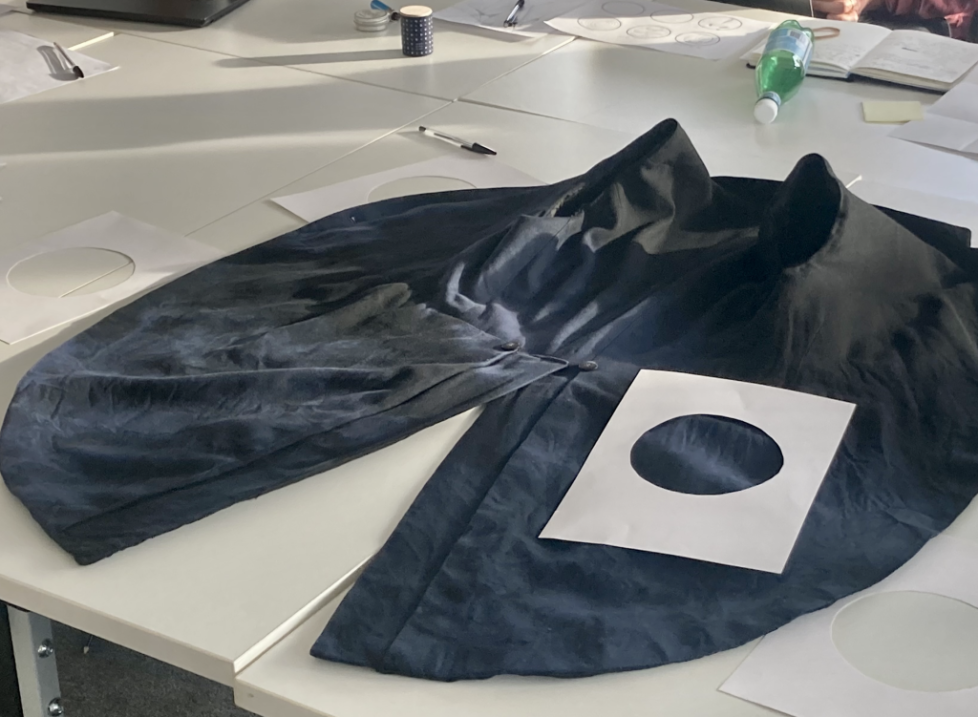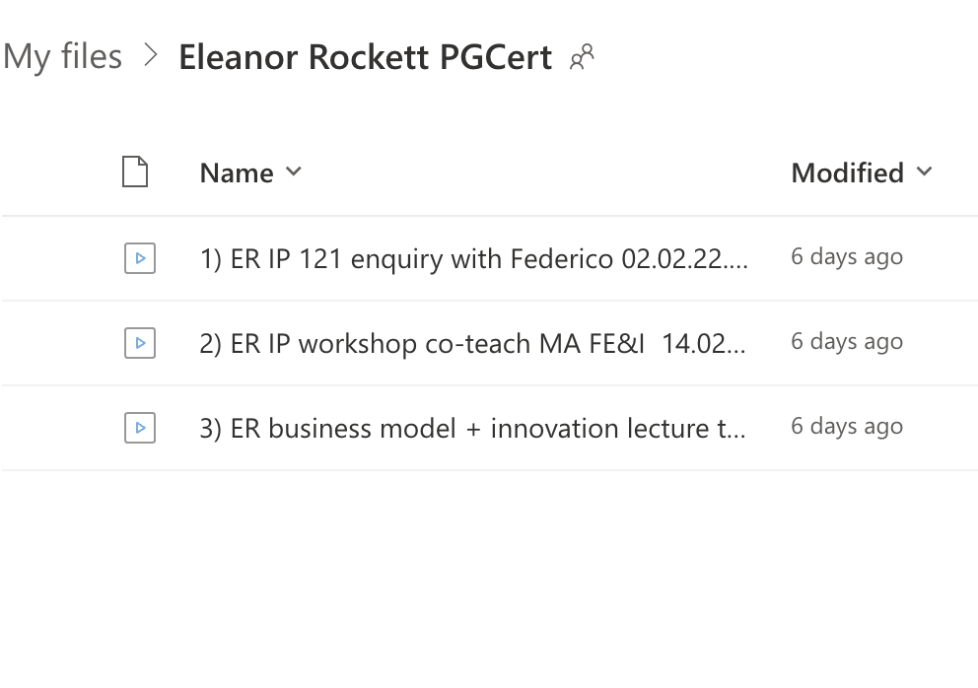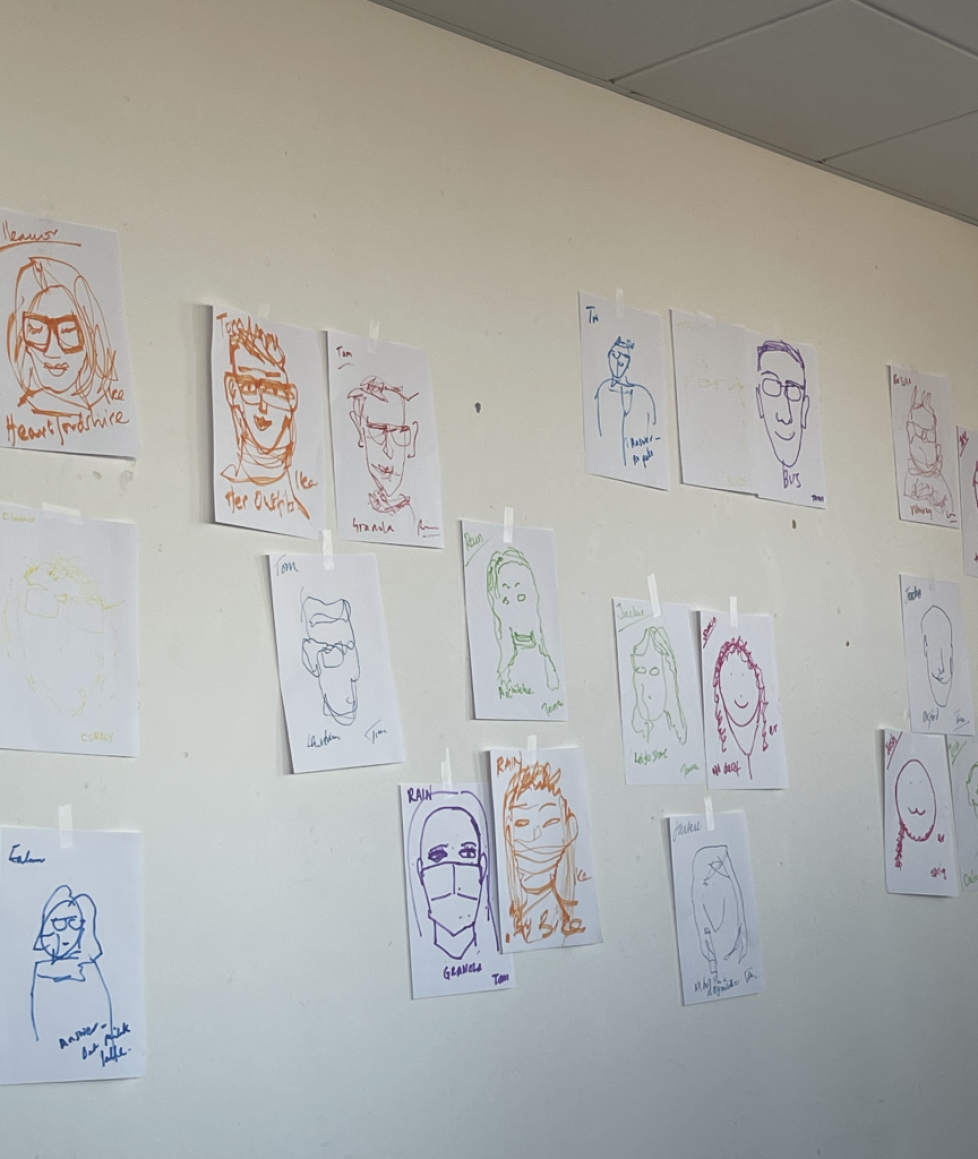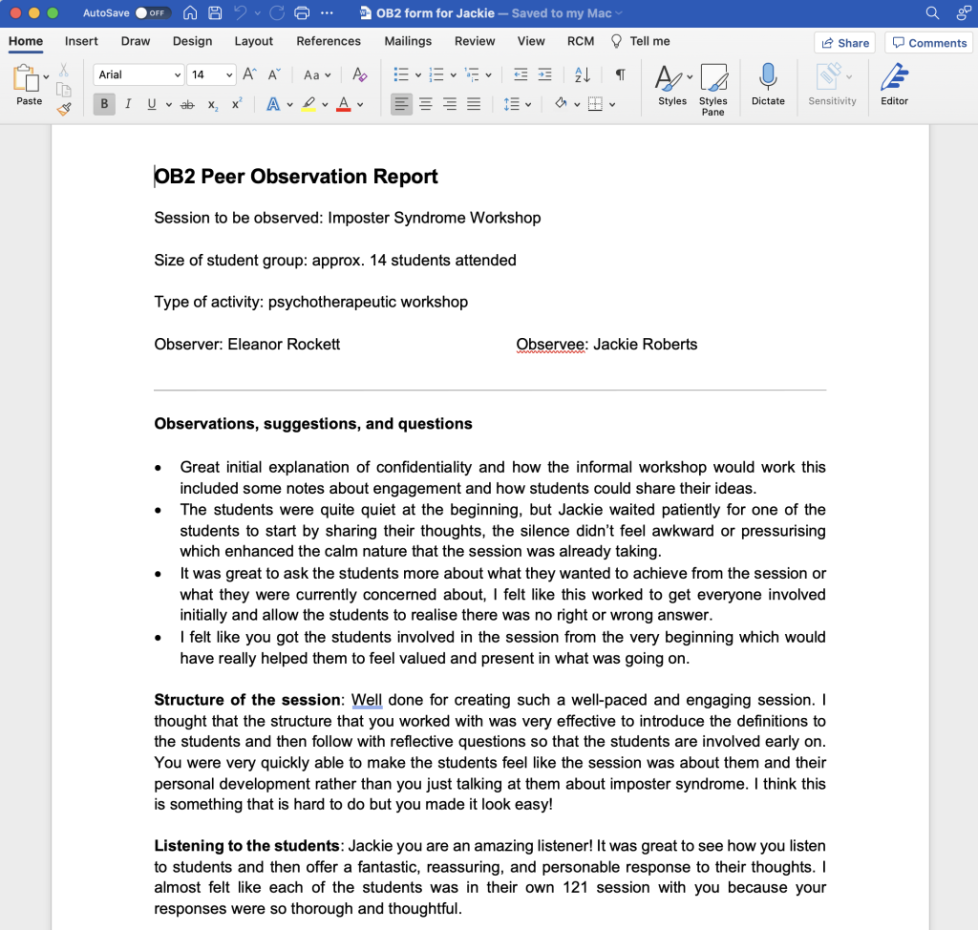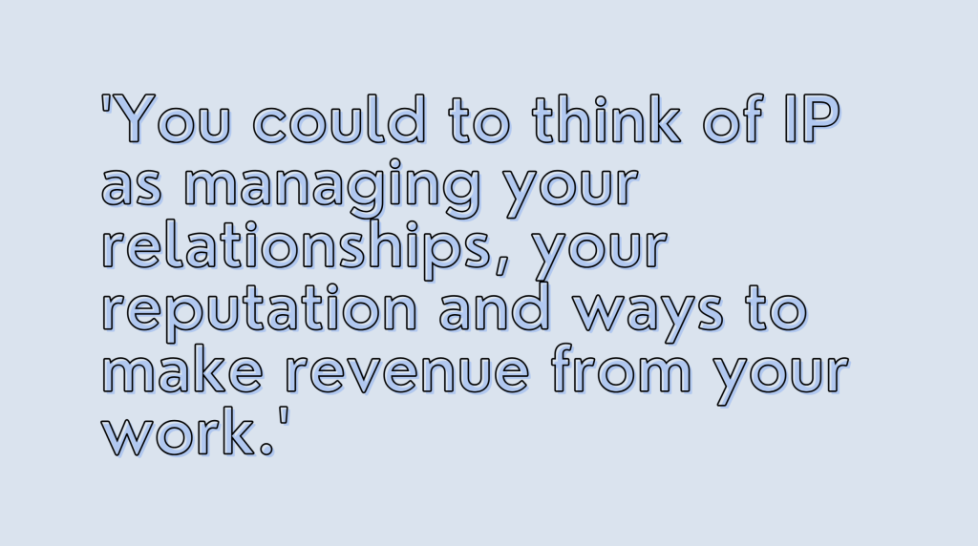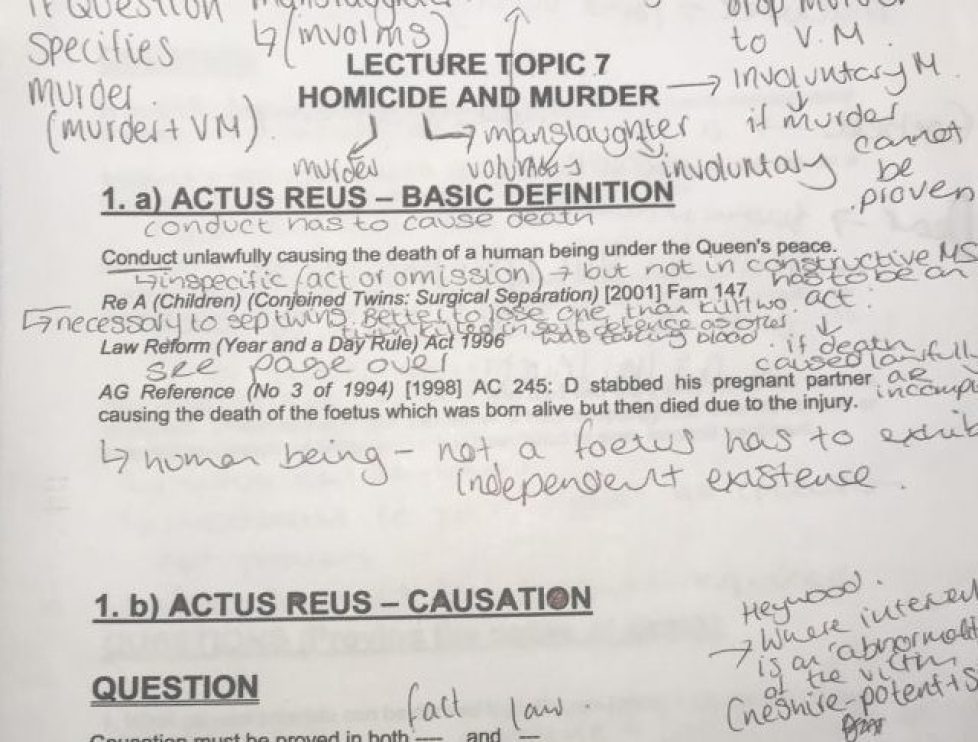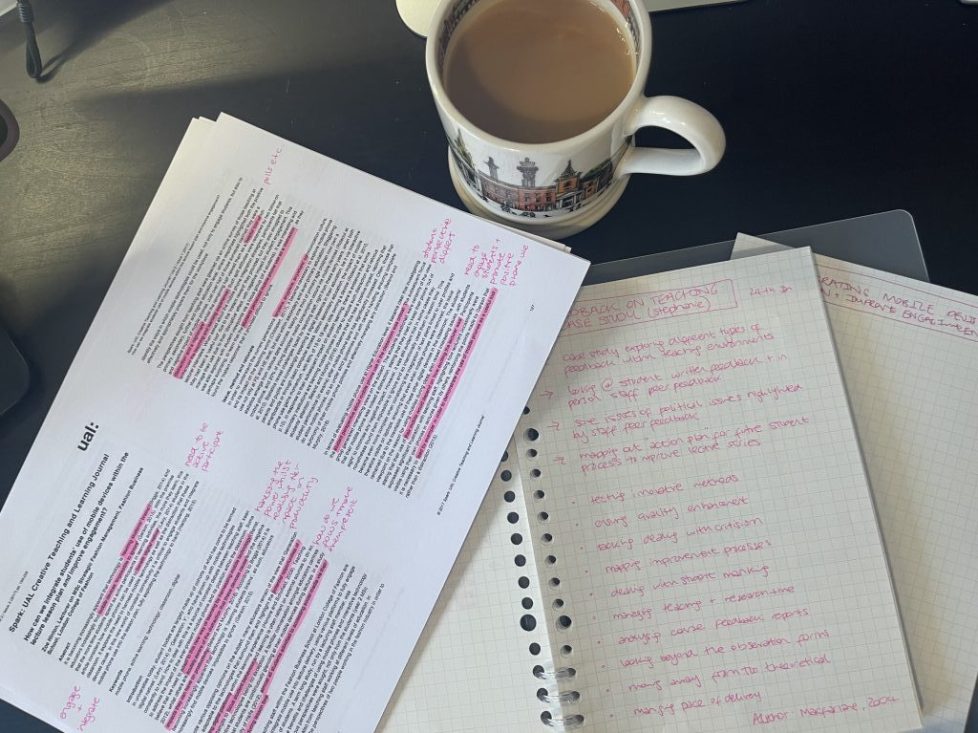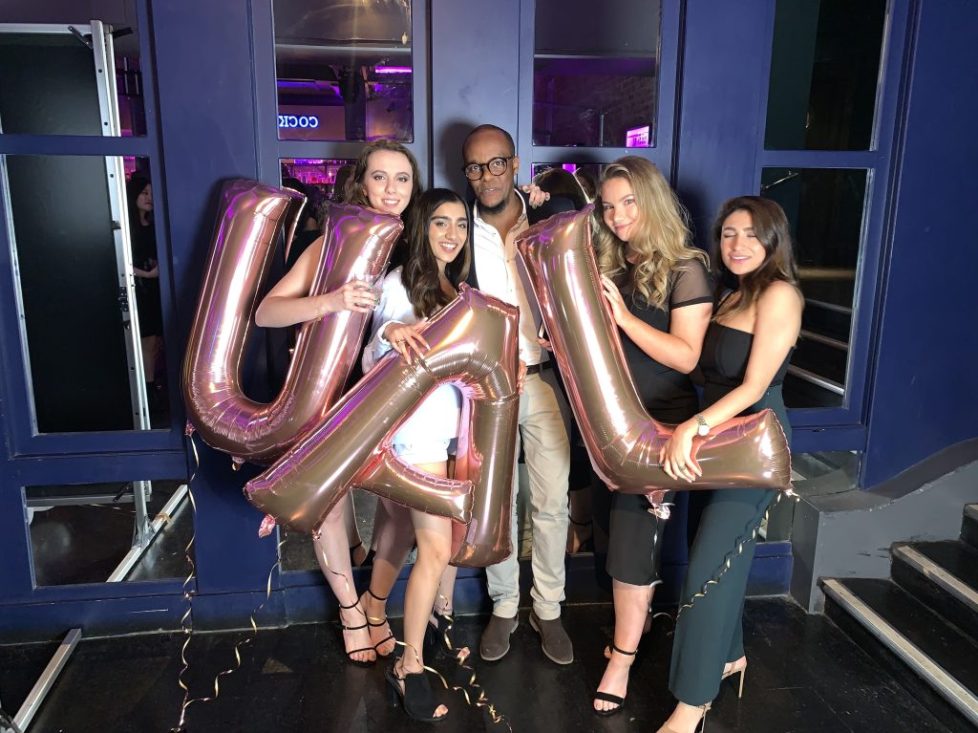I’m not sure what I expected from my PgCert group or that I’d really spent too much time thinking about it. I had a slightly unusual start to my working life at UAL as I started my role in February 2021 in the midst of the UK’s 3rd national lockdown. At the time I was living by the sea in Portsmouth with my partner in his family home and I one day joined UAL without actually meeting anyone in Careers and Employability face-to-face. It wasn’t until July 2021 (many months later) that we had an away day to Brighton and I was suddenly presented with the people attached to the faces I had met online.
I was concerned initially that my PgCert might be online as in all honesty I was craving interaction with real humans as I had spent much of my first year at UAL online only. It was great to share our experiences with each other in the first session where we met as a group hosted by Rachel, I loved hearing about peoples jobs and their life outside of UAL. It wasn’t until the microteach session that I quite realised how much I could learn from this group of staff members.
The day started at LCC with Ulrike’s microteach and she introduced a drawing task – with full transparency this introduction made me quite tense because drawing is really really something I am not good at! So it took me a moment to relax into the activity and enjoy the task in hand. It was great to watch how each of my colleagues approached the microteach so differently and exciting that each activity was unique. I definitely think I’d had enough of drawing for one day (and very much not improved by poor skills) but I was only starting to learn from every individual.
My microteach was quite intense – fast paced, lots going on and much to understand (generally the approach that I take for much of my life). It was followed by a meditative type session from Ike, the way he was able to change the pace so powerfully yet peacefully was impressive and it showed me the power in being able to craft or control a session so well. So I left thinking about how I could use some elements of this approach I had seen Ike so brilliantly display into my sessions. Similarly, Jackie was able to almost cast a spell over the group instantly allowing them to feel confident in sharing their thoughts. One thing I know I struggle with is waiting (aha every the inpatient one) and sometimes I am concerned about having a gap of silence whilst I wait for students to respond so I talk through it. When I’ve next got this sort of gap in response I must think like Jackie and feel confident in the silence whilst I am waiting for a student to respond.
I am sure that I could continue for much longer outlining all of the things I’ve learned from my group. But let’s round up with… I hope this is just the start.
